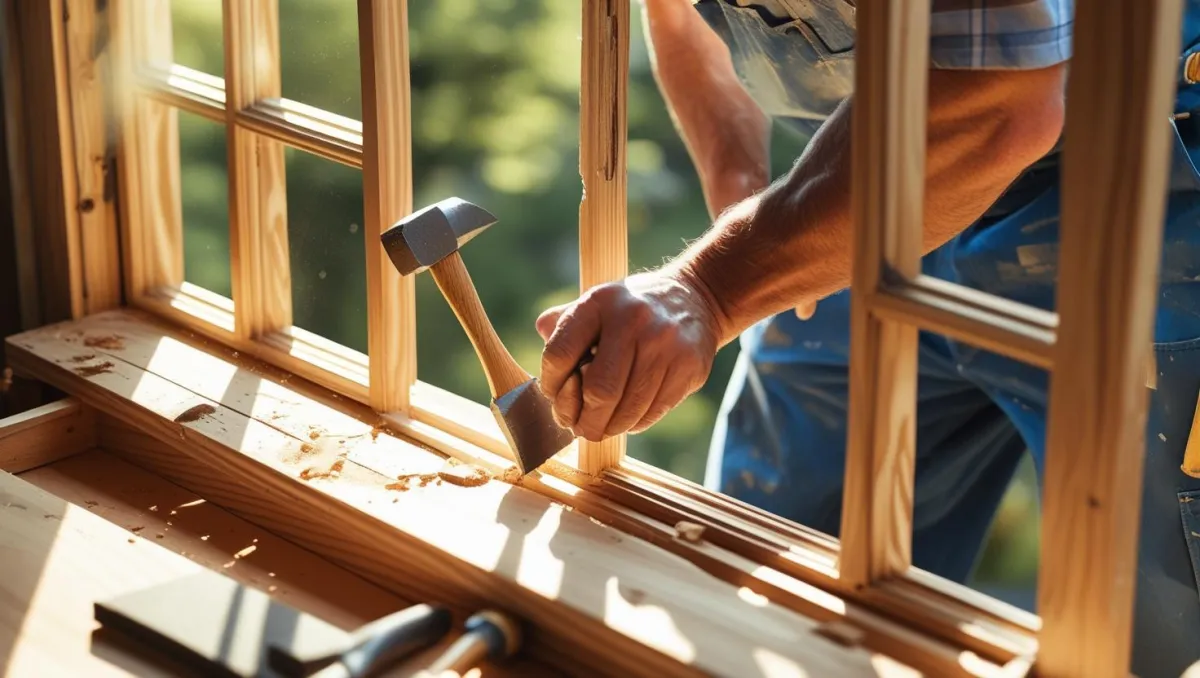Sentinel Shield Community Connect

How to Tell if Your North Texas Home’s Foundation Needs Repair
How to Tell if Your North Texas Home’s Foundation Needs Repair
In North Texas, foundation problems are a common concern for homeowners and buyers. The region’s unique soil and weather conditions can cause house foundations to shift or settle over time. Fortunately, there are clear signs to watch for and reliable methods to evaluate a foundation’s condition. In this guide, we’ll explain why North Texas soil leads to foundation issues, how to spot warning signs in a home, and how Sentinel Home Inspections evaluates foundations across cities like Dallas, Fort Worth, Plano, Frisco, McKinney, and Allen. We’ll also clarify when you might need a structural engineer’s assessment. By the end, you’ll know how to determine if a home’s foundation may need repair and what steps to take next.
Why North Texas Soil Causes Foundation Issues
North Texas soil is notorious for causing foundation movement. Much of the Dallas–Fort Worth area sits on clay-rich soil that behaves dramatically with moisture changes. In wet conditions, clay soil absorbs water and expands; during dry spells, it shrinks and cracks. The result is a cycle of swelling and contracting ground that puts stress on home foundations. As the soil expands then shrinks, the foundation will rise and fall unevenly, leading to cracks and damage over the years.
Adding to the problem is the soil’s moisture content. Clay does not drain well, so rainwater often pools around the foundation, causing parts of the foundation to heave (lift up) or sink as the ground softens. On the other hand, some North Texas areas also have sandier soil layers. Sand doesn’t swell with moisture as much as clay, but it can shift or erode if not compacted, especially when water flows through it. This contrast means that a home could experience differential movement – clay pushing up in one spot while sandy loam settles in another. In short, the mix of expansive clay, sandy or loamy layers, and rapid wet/dry cycles in Dallas, Plano, Frisco, and surrounding suburbs creates a perfect recipe for foundation issues. Homeowners need to stay vigilant about these soil-driven challenges.
Signs of Foundation Problems to Watch For
How can you tell if a foundation may need repair? There are several warning signs you can spot around the house that suggest the foundation has shifted or settled:
Cracks in walls or ceilings: Keep an eye out for new cracks in interior drywall, especially diagonally above door frames or along ceilings. In brick exteriors, stair-step cracks following the mortar lines are a clear indication of foundation movement.
Doors and windows that stick: If doors suddenly become hard to open/close or windows jam in their frames, the house may be out of square due to a shifting foundation.
Sloping or uneven floors: You might notice floors that aren’t level — for example, you feel like you’re walking uphill or downhill in certain rooms. Significant floor slope can mean one part of the foundation has sunk or heaved relative to the other.
Gaps or separation: Look for gaps between walls and the ceiling or floor, or separation between exterior bricks and window frames. These can occur when the structure is pulled apart by foundation movement.
Keep in mind that small cracks or slight sticking of doors can be normal in any house over time. The key is to watch for changes or worsening conditions. If these issues are pronounced or getting bigger, it’s wise to have the foundation evaluated.
How Sentinel Home Inspections Checks Your Foundation
Identifying foundation problems isn’t just about spotting cracks on the surface. Sentinel Home Inspections, serving homeowners across Fort Worth, Frisco, Allen, McKinney, and the surrounding DFW region, takes a detailed approach to assess whether a foundation might need repair. Unlike a typical inspection that relies mostly on visual clues, Sentinel’s process includes a foundation elevation survey for precise measurements. Using specialized equipment, the inspector records the floor elevation at various points throughout the house. This reveals if any area of the foundation is out of level and by how much. Even a difference of an inch or two across a room can indicate notable settling.
In addition to measuring elevation changes, the inspector performs a thorough visual check of the structure. They look for interior and exterior wall cracks, examine whether doors or windows are sticking, and note any other evidence of shifting or settling. By combining the hard data (floor level readings) with physical signs of movement, Sentinel provides a comprehensive picture of the foundation’s condition.
How is this different from a standard inspection? Many general home inspections will note obvious cracks or defects, but may not include detailed elevation measurements. Sentinel Home Inspections distinguishes itself by going beyond the basics. The elevation survey offers an extra layer of insight that typical inspections often lack. It can catch subtle uneven settling that might be missed if one only eyeballs the floor or relies on a level tool in one spot.
After the evaluation, you receive a report that clearly documents all findings. This usually includes a diagram or map of the foundation with the elevation readings noted for different areas. Having this baseline is valuable for future reference too – you can compare later measurements to see if the foundation is moving more over time. Sentinel Home Inspections’ thorough approach gives homeowners in North Dallas, Prosper, Celina, and other fast-growing suburbs clarity and peace of mind about what’s happening under their feet.
Inspector Evaluation vs. Engineer’s Report
It’s important to understand that a home inspector’s foundation evaluation, as detailed and informative as it is, does not replace a structural engineer’s report. Home inspectors are licensed professionals trained to identify issues and measure performance, but they are not licensed engineers. Sentinel’s foundation inspection will tell you whether there are signs of trouble and even how far out of level the house is, but it won’t provide an official engineering analysis or repair plan.
Think of the inspection as a first step. Sentinel Home Inspections will let you know if the foundation’s condition warrants bringing in a structural engineer for further evaluation. In many cases, if the measurements and visual signs are minor, the inspector might conclude that no immediate engineer assessment is needed – perhaps just monitoring or basic repairs. If significant movement is found, the inspector will recommend you consult an engineer or a foundation repair specialist.
Remember, only a licensed structural engineer can formally certify the structural integrity of the foundation and design a repair solution. Sentinel’s evaluation is there to give you an informed opinion on whether you need to take that next step. It’s a cost-effective way to gain clarity. In fact, having an inspector perform an elevation survey during a regular home inspection can save you hundreds of dollars versus immediately hiring an engineer for a full report.
Ready for Peace of Mind? Schedule an Inspection Today
Foundation issues can be intimidating, but knowing the signs and getting a professional evaluation early can make all the difference. If you’re in Dallas, Fort Worth, or the surrounding North Texas suburbs like Plano, McKinney, Allen, or Frisco and have noticed potential warning signs—or simply want the confidence of a thorough foundation check—consider reaching out to Sentinel Home Inspections. Our approachable, knowledgeable inspectors will assess elevation changes, inspect for cracks and structural shifts, and explain the findings in plain language. While it’s not a substitute for an engineer’s report, a Sentinel foundation evaluation can help you determine if one is needed and guide you toward the right solution.
Don’t wait for small cracks to turn into big problems. Contact Sentinel Home Inspections for more information or to schedule a foundation inspection. With our specialized approach and understanding of North Texas soils, we’ll help you protect your home’s foundation and your peace of mind. Let us be your partner in ensuring your home remains safe, sound, and on solid ground.
WHO WE ARE
We protect real estate investments by conducting thorough and detailed inspections with our Sentinel Shield 360 process. We identify potential problems upfront, ensuring no critical issues are missed. This gives you peace of mind and confidence in your property's condition, helping secure your real estate transactions.
OUR MISSION
Our mission is to provide every customer with an unparalleled home inspection experience, delivering thorough, accurate, and reliable assessments that empower informed decisions and protect their investments.
CONTACT US TODAY
ADDRESS: 12416 Grey Twig Dr.
PHONE NUMBER: +1 (817) 266-9562
EMAIL: [email protected]
MONDAY-SUNDAY (ALWAYS OPEN)
License #25351
SERVICE AREAS
Proudly serving Dallas, Fort Worth, Arlington, Plano, Frisco, McKinney, Irving, Garland, Grand Prairie, and surrounding communities including Keller, Lewisville, Rockwall, Allen, and more across the DFW metroplex.

